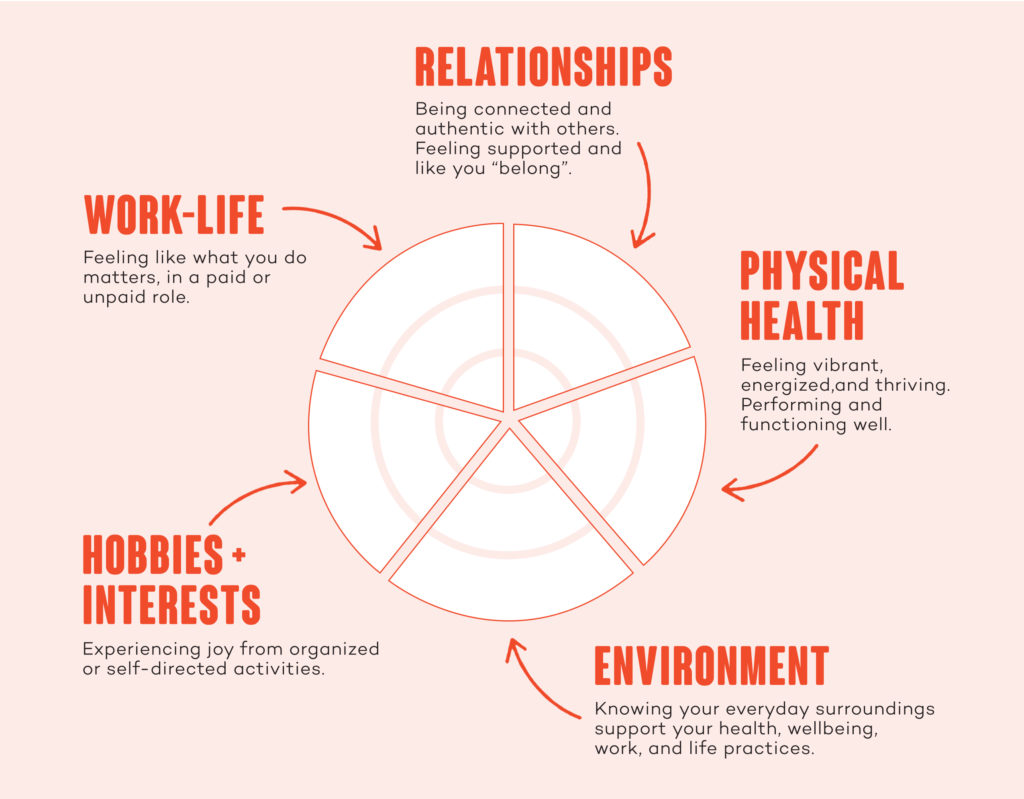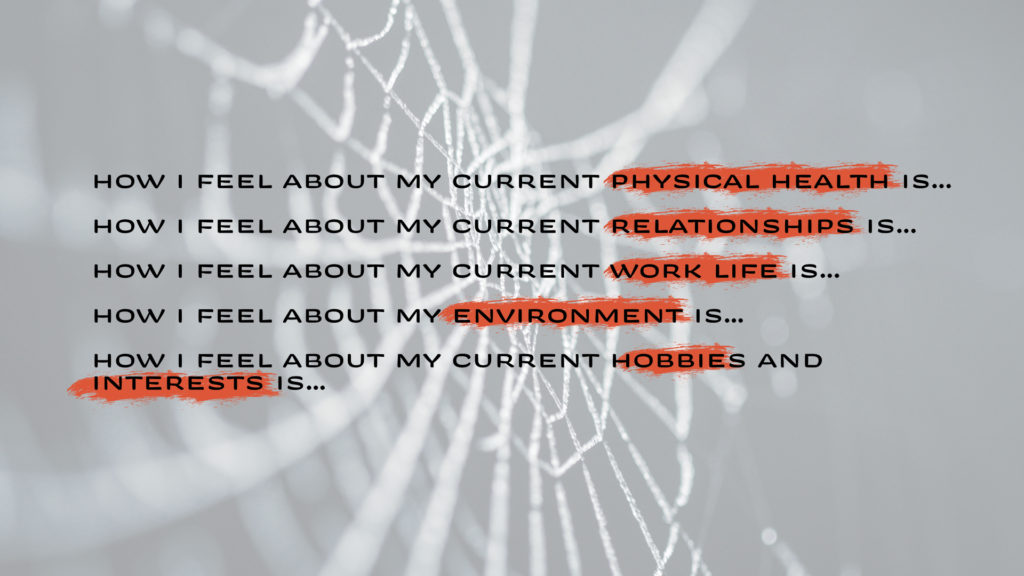Career Advancement ≠ Fulfillment: Why Success In Health & Fitness May Not Lead To The Life You’re Looking For
++
It’s easy to want to change – or “fix” – your career. To push harder. Generate more money. Become more “successful.” But what if chasing your career goals actually pushes you further away from the place – and the person – you ultimately want to be? This 10-minute exercise will help you figure out what to focus on so you can get the results you want, faster.
++
So let’s start with the elephant in the room…
You will never have enough money
You’ll likely always be searching for ways to make more, because the more you make, chances are, the more you’ll want.
This follows a well-documented hypothesis about well-being called the Hedonic Treadmill, which refers to a reduction in the intensity of favorable or unfavorable circumstances.
In other words, people get accustomed to all sorts of things — good and bad — be it a windfall of cash from winning the lottery, an accident that leaves one paraplegic, an increase in salary, or an abundance of high-pleasure foods.
So, if your sole focus in choosing a career and measuring the success of your life is how much you make (or any ONE factor for that matter), you’ll probably be disappointed in the end to find out that, after a certain point, the late Christopher George Latore Wallace was right: “Mo’ money = mo’ problems.”
There are other important criteria to consider
The question of money—how much you’ll make and whether or not you’ll be able to afford what you want—though an important aspect of your decision-making, often overshadows other aspects of your life that may be equally as important.
Things like:
YOUR PHYSICAL HEALTH
As defined by the World Health Organization, health is a state of complete physical, mental, and social well-being, and not merely the absence of disease. When you’re physically healthy, you feel vibrant, energized, and thriving. You perform and function well.
YOUR RELATIONSHIPS
Here, we’re talking about the connections you have with your friends, family, coworkers, and loved ones. It’s the level of support you feel from those around you and a sense that you belong.
YOUR WORK-LIFE
Work is the stuff that you “do.” It can be done both inside an official job or outside of it. Assuming you’re not financially independent, you’re usually getting paid at least a portion for your work, however, this could also include volunteer work or the work you do to take care of others (e.g. if you’re a stay-at-home parent or caretaker).
YOUR ENVIRONMENT
Here, we’re talking about how well your everyday surroundings support your health, wellbeing, work, and life practices. And, whether or not you’re able to continue growing and pursuing challenges.
YOUR HOBBIES AND INTERESTS
These include all of the things that bring you joy. Your hobbies and interests might include organized activities (like sports) or they might be self-directed activities (like playing an instrument). They’re done for fun, not merit.
So, while financial security and stability are an important piece of your life, how much you make also needs to be balanced against all of the other factors, like work-life balance, autonomy, and your relationships in and outside of work, to name a few.
You can’t separate your work and your life
You won’t be able to understand how to design your work life until you understand how it fits within the context of the rest of your life.
You also won’t know what the real challenge is, if you don’t get honest with yourself in regards to how each realm of your life is doing, and how you’re doing on the whole.
If, for example, you take time to reflect and find that your biggest problem is a relationship problem, you won’t be able to “fix” your life by focusing solely on your career. If anything, pouring more energy into your career, as a means to avoid the issues that are in your relationship, will only make your life worse.
By evaluating how you’re doing across various domains, you’ll be able to see which areas of your life are working—and which ones aren’t—so you’ll be able to clearly define your biggest challenge and generate relevant solutions.
You’ll also save yourself years of time that might be otherwise spent focusing on the wrong thing.
Plus, within a career context, you’ll get a better sense of how you’d like your career to fit within your life. Meaning, if you notice you’d like more time to focus on your health, you might look at career paths that allow for more predictable, steady hours so you can consistently block off time to workout.
To help you figure out where to focus your attention – and make changes that are worth making – we recommend painting a clear picture of your life, using one of our favorite tools: The Life Web.
Here’s how it works.
The Life Web Exercise
STEP 1
Color in each domain of your life web
To get a sense of where you are in your life—and how things are going—fill out this web in your Life Web Workbook.

The more you color in each area, the better you’re doing. While the relative importance of each area is up to you, noticing which areas are lower might alert you to what requires your attention.
STEP 2
Write a few sentences about how each domain is going, without judgment
Add more context to your rating in each category to get a better sense of what’s going well—and what you might build upon—and what you’d like to change.
For example, if you colored in two sections of the pie for your work-life balance, what specifically made you choose that amount, rather than coloring in only one section? If you could wake up tomorrow and it was colored in all the way, what would make that possible?
And as you do this, remember: identifying an area that requires work isn’t a bad thing. No one has a “perfect” life, so be kind to yourself.
You can jot some notes about each domain in your Life Web Workbook.
The goal here isn’t balance
Depending on your life stage, some areas will be fuller than others.
For example, a person who is single without kids might rank higher in their realms of physical health and hobbies and interests, while having a lower ranking in the area of relationships and work life. And they might be totally fine with that.
A person in their 50s with a family might rank themselves lower on the health and hobby spectrums, and higher on the relationships and work spectrums. They might be okay with their lack of hobbies and want to improve their health.
The goal is to look at how you ranked yourself in each area and decide what you are—and what you’re not—okay with, based on your own values and priorities.
STEP 3
Figure out where your real challenges lie + plan for the future
Now that you’ve taken the time to fill out your Life Web, it’s time to assess what areas truly need your attention now by answering the following questions:
QUESTION 1
What areas—if any—require my attention right now?
If you’re here, your career (and life) is likely something you want to work on. Are there other areas as well? If you had to rank your priorities over the next few months, what would they be?
QUESTION 2
If I could pick one area to work on, that would positively impact all other areas, what would that be and why?
The good thing to keep in mind is that usually improving one area of your life will positively impact some—if not all—of the other realms. If, for example, you improve your physical health, you might find that you have more energy to put into your work and your relationships.
QUESTION 3
How might this knowledge impact what I focus on first?
If you have the time and capacity to dive all in and really go for it, that’s great. In a short couple of months, you can be in a significantly different place than you are now. If you have other things on your plate, that’s okay too.
QUESTION 4
How might this knowledge impact the way I build my career?
If you notice that you require more time for your health, for example, perhaps you’ll decide to take a job that has a little lower pay for a little more freedom. If you notice that your social support is lacking, finding a way to work at an awesome company, or collaborate with awesome people, might be better for you than going out on your own.
Resources that can help you, outside of your work-life
If you notice that your physical health, your relationships, your environment, or your hobbies and interests require attention, that’s a good thing. While it might be uncomfortable, awareness provides the opportunity to make improvements.
While this article is too short to address those areas, here’s a list of resources you could check out in to help you make some improvements:
PHYSICAL HEALTH
Precision Nutrition’s Coaching Program
Girls Gone Strong Coaching Program
The Sleep Revolution (book)
Why Zebras Don’t Get Ulcers (book)
RELATIONSHIPS
Boundaries by Henry Cloud and John Townsend (book)
Crucial Conversations by Kerry Patterson et al (book)
Getting the Love That you Want by Harville Hendrix and Helen Hunt (book)
The Seven Principles for Making Marriage Work by John Gottman and Nan Silver (book)
The 5 Love Languages by Gary Chapman (book)
ALTERING YOUR ENVIRONMENT + PERSONAL GROWTH
Atomic Habits by James Clear (book)
Switch by Chip and Dan Heath (book)
Tiny Habits by BJ Fogg (book)
HOBBIES AND INTERESTS
Think of things that you loved to do as a kid. Go do, and try, some of those things. Alternatively, book a date with yourself each week and try something new. You might find a new hobby that you really enjoy.
Summary:
Trying harder doesn’t work, unless you’re “trying” at the right thing
Working hard, by default, isn’t necessarily going to get you where you want to go. For example, focusing on making more money when your relationships at work and at home are suffering greatly, isn’t going to lead to fulfillment and a sense of purpose. It sounds like common sense, but unless you take a moment to assess where you’re at, it’ll be harder to focus on what you really need to move forward in a significant way.
Take an audit of your life
What areas require your attention right now? What areas of your life are you okay with being a little lower? Getting a big-picture view of your life—what’s good and what’s lacking—will help you generate ideas for what path to take so you can chase fulfillment.
Find out where the challenges lie
Once you’ve taken your audit, you’ll have a good idea of what requires your attention. Spend some time brainstorming action steps to increase your evaluation in the areas that are most important to you.
Want to learn more?
Then check out Dr John Berardi’s one-of-a-kind book – winner of the 2021 Axiom Business Book of the Year – Change Maker: Turn Your Passion For Health and Fitness into a Powerful Purpose and a Wildly Successful Career.
The health and fitness industry is huge, highly competitive, and often confusing to navigate. Dr. Berardi helps you make sense of the chaos, laying out a clear roadmap to help you achieve both personal and professional success.

